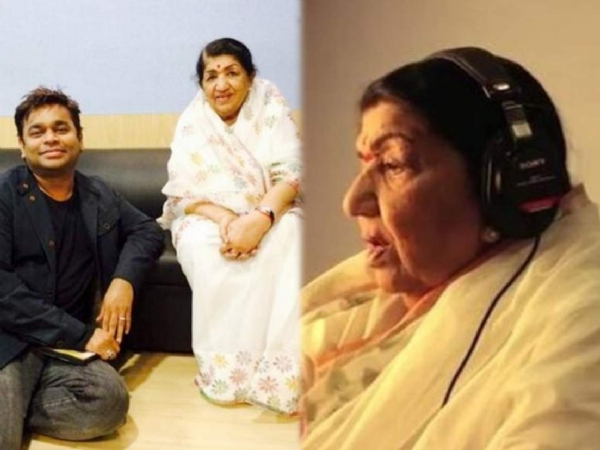When Lata Mangeshkar stood for 8 hours to record the song 'Luka Chuppi' and…
06 Feb 2022 11:17:36
Today, the legendary singer and Bharat Ratna recipient Lata Mangeshkar breathed her last on Sunday due to multi-organ failure after more than 28 days of hospitalization post-COVID-19. Known as the ‘Nightingale of India’, she has left behind a legacy that cannot be matched with any other artist. Under her name, there are treasures of amazing songs that are vocalized in her mellifluous voice and sung across a career that lasted for over 70 years.
There are several instances of her that set an example of her determination and grit towards her passion - singing. One such instance was when the singer stood for 8 hours recording the song 'Luka Chuppi' of movie Rang De Basanti.

Most of us definitely remember this song as it has held a special place in the heart of the audience in the past especially if speaking about a mother and her child. The track is an instant tear-jerker, sung by Lata Mangeshkar and AR Rahman. Rakesh Omprakash Mehra revealed the song's origins at a press conference. Narrating the incident, he had said that they had spoken to Lata Didi quite a few times about the song, but that it was only months later that he called her back, and she graciously agreed. She said sure. What is the song Send it to me?
Mehra continued, "He is still making it, and Prasoon is still writing it, but I have already shot it. She said, Aisa bhi hota hai aajkal (Is that how it is done these days).I said, Haan.Aisa hota hai (Yup, it happens)." He added that they were supposed to record the song on November 15 when Lata Mangeshkar told them that she would fly to Chennai by November 9-10.
Rahman, Mehra and Joshi had first thought that she must have come to Chennai for some other work but then it came to know that she had come so long ago for the shoot of the song. “I would like this to sink in that Lata Mangeshkar would come to the studio every day and rehearse the song. For 4 days she rehearsed,” Mehra added.
From that day she used to rehearse this song in the studio every day. She rehearsed for four days. He further revealed that on the day of the recording, people at the studio had kept water, food items and chair for Lata ji in the room, but she did not take anything and stood for 8 hours continuously and sang for all those hours. “She spoke to Rahman saab. She stood at the mic, we were in the room. She stood there, her plait touching the floor. We kept some flowers, a bottle of water and a chair for her. For 8 hours, she sang the song and for 8 hours she stood there,” he recalled.
Lata, considered one of the greatest Indian playback singers, will live on through her melodies. Her solos and immortal duets with Mohammed Rafi, Kishore Kumar and Mukesh, along with a legion of other prominent Indian singers, are among Hindi cinemas most memorable songs.
